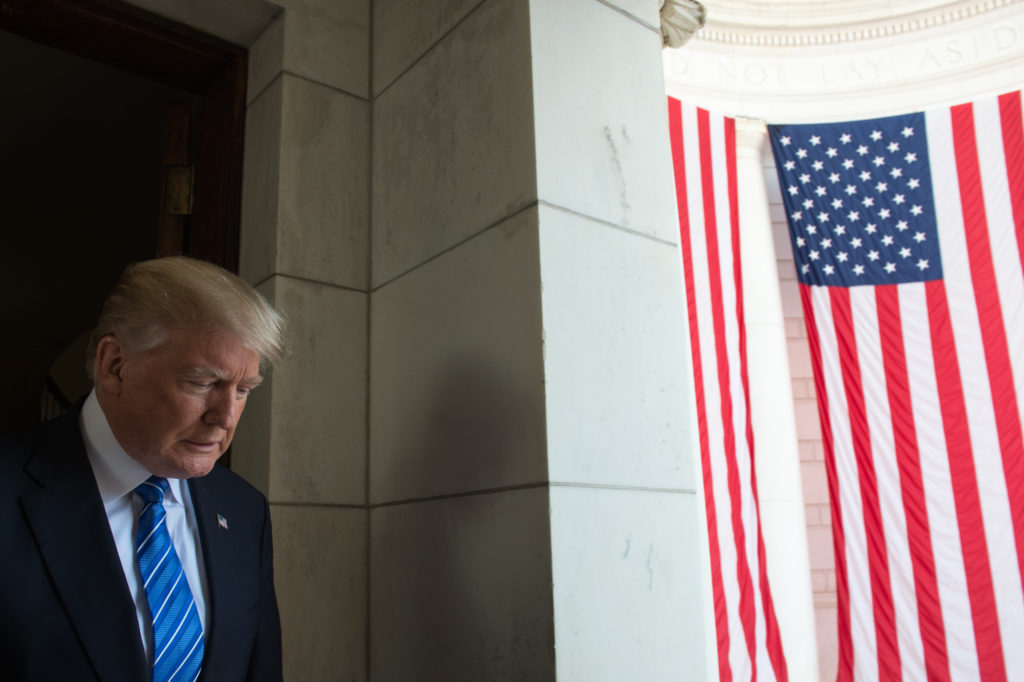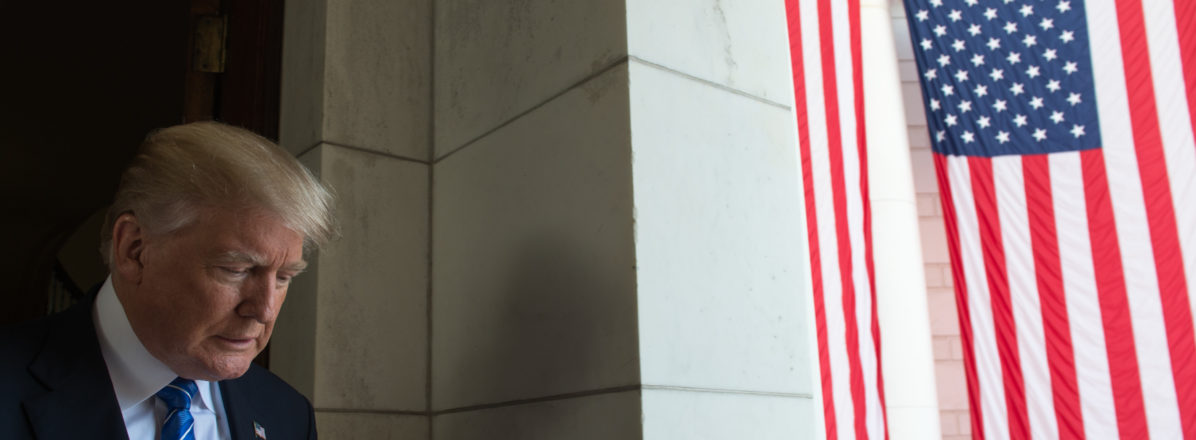A nation must think before it acts.

Editor’s Note: The following article will appear in the Editor’s Corner of the Fall 2017 issue of Orbis: FPRI’s Journal of World Affairs. All articles from Orbis are available at the Orbis website on Elsevier’s Science Direct. Associate level members of FPRI receive a copy of Orbis as a part of their membership benefits.
Donald Trump recently delivered one of the better speeches of his young presidency in Warsaw, where he called on the West “to summon the courage and the will to defend our civilization.” Surprisingly, the speech was roundly criticized by some as offensive. One commentator called it “an alt-right manifesto.” Another claimed that by referring to “the West” and to “our civilization” Trump was pandering to “white nationalism” because “the West is a racial and religious term.”
Of course, what Trump said differs not at all from what previous presidents, Democrat or Republican, have said. In 1952, Harry Truman praised the United States for saving “Western civilization from enslavement by a godless creed.” In West Germany in 1963, John F. Kennedy spoke of “preserving Western culture, and Western religion, and Western civilization” and defending “our common heritage from those who would divide and destroy it.” In 1966, Lyndon B. Johnson, warned of “ideologies . . . that threaten the very roots of our common Western civilization.”
During his 1982 Westminster address, Ronald Reagan praised Poland as a country “at the center of European civilization” and warned that our shared Western civilization is threatened by “totalitarian forces in the world who seek . . . to further their barbarous assault on the human spirit.” He called on the West to defend “the great civilized ideas: individual liberty, representative government, and the rule of law under God,” and criticized “the shyness of some of us in the West about standing for these ideals.”
And in 1994, Bill Clinton declared that “Western civilization was the greatest of all, and America was the best expression of Western civilization because of its commitment to . . . the belief that the future could be better than the present and that we have an obligation to make it so.”
So the question arises, what is “the West” and why do some see defending Western Civilization as a manifestation of racism? Donald Kagan, the great classical scholar, provides perhaps the best answer to the first question:
No fair-minded person can deny that, whatever its other characteristics, the West has created institutions of government and law that provide unprecedented freedom for its people and a body of natural scientific knowledge and technological achievement that together make possible a level of health and material prosperity undreamed of in earlier times and unknown outside the West and the areas it has influenced. I think V. S. Naipaul, born in Trinidad of Indian parents, is right to speak of the modern world as “our universal civilization” shaped chiefly by the West. Most people around the world who know of them want to benefit from the achievements of Western science and technology. Increasingly, they also want to participate in its political freedom. The evidence suggests, moreover, that a society cannot achieve the full benefits of Western science and technology without a commitment to reason and objectivity as essential to knowledge and to the political freedom that sustains it and helps it move forward. The primacy of reason and the pursuit of objectivity, therefore, both characteristic of the Western experience, seem to be essential for the achievement of the desired goals anywhere in the world.
The civilization of the West, however, was not the result of some inevitable process through which other cultures will automatically pass. It emerged from a unique history in which chance and accident often played a vital part. The institutions and ideas, therefore, that provide for freedom and improvement in the material conditions of life cannot take root and flourish without an understanding of how they came about and what challenges they have had to surmount. Non-Western people who wish to share in the things that characterize modernity will need to study the ideas and history of Western civilization to achieve what they want, and Westerners who wish to preserve them must do the same.
Thus, contrary to the claim of those who argue that the West is based on race, Western civilization is founded on ideas that transcend race and religion. Kagan continues: “Americans do not share a common ancestry and a common blood. What they have in common is a system of laws and beliefs that shaped the establishment of the country, a system developed within the context of Western civilization.”
Today, the greatest threat to Western civilization comes from within, especially from “multiculturalists,” and other cultural Marxists, who portray Western history as an endless saga of imperialism, colonialism, racism, and oppression. The cultural Marxist assault on the West began in the 1960s (“Hey! Hey! Ho! Ho! Western Civ has got to go!”). The victory of Western principles at the end of the Cold War, the spread of democracy and capitalism, and the worldwide impact of American popular culture did not change things.
But the cultural Marxists are wrong. Kagan argues that it was “the philosophical, scientific, agricultural and industrial revolutions in the West” that allowed human beings “to produce and multiply the things needed for life so as to make survival and prosperity possible for ever-increasing numbers” and gave birth to “the theory and practice of the separation of church from state, protecting each from the other, and creating a free and safe place for the individual conscience.”
But the emergence of the West was not preordained; it was not a seamless progression from “Plato to NATO.” It did not have to happen that way. Instead, it was in many respects a happy accident of history, the result of chance and contingency; including a creative tension between Jerusalem and Athens, between faith—“the beginning of wisdom is the fear of the Lord”—and reason when Socrates asked, “what is the best way for man to live?,” largely mediated by the Roman concept of law; and between the medieval Church, and the freedom-loving Germanic tribes that eventually came to rule Europe. This premodern synthesis helped to create the institutions we now regard as quintessentially Western—property rights and constitutional government, for example, which grew out of the centuries-long collision between empire-building rulers like Charlemagne and Charles V, and the equally self-interested princes and churchmen who resisted their designs.
The fact that the emergence of the West and its virtues—liberty, reason, the rule of law, property, and prosperity—was not preordained makes it all the more critical that those who wish to defend those virtues must understand their real foundations. The West has lost much of its vigor because it has forgotten its religious and cultural roots. It is time to recover that understanding.




